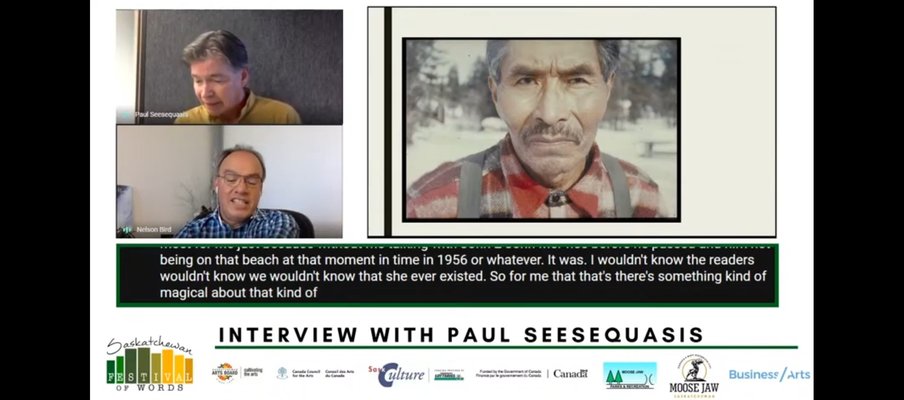Winding Words with Saskatchewan Festival of Words

Related Programs
As the COVID19 pandemic began to force business closures and social distancing guidelines, many organizations throughout Saskatchewan were faced with a difficult decision: do they postpone or cancel events that had been planned for months or do they find new ways to adapt to the challenges posed by the pandemic? The Saskatchewan Festival of Words (SFW) chose to adapt, moving its programming to a digital format, in order to connect with audiences at home and abroad.
“We were working on a final schedule when COVID19 hit. The day that Saskatchewan started shutting everything down was less than a week from [LitCon] a oneday conference we were planning,” says Amanda Farnel, operations coordinator, Saskatchewan Festival of Words. “We gave ourselves to the end of April to make the decision on what would happen with the Festival.”
Despite the uncertainty, cancelling the event entirely wasn’t an option that was considered. “A couple of weeks into April, it was clear that there would be no way for an in person festival to take place, so we quickly made the decision to take it online,” Farnel adds. “It was important for us to provide some escape from the news and the isolation of the pandemic. Even though we weren’t able to bring people together inperson, we were able to bring our community together to chat in every stream.”
Drawing inspiration from other festivals who were taking their programming online, festival organizers were able to look at what others were doing and how their contemporaries could help them develop their own online program. “We were lucky that there were other literary festivals already making the transition to a virtual event before we started planning our transition. We were able to watch them and make decisions on what worked and what didn’t.”
While lessons were learned from watching others, taking events online was not without its fair share of challenges. “Our main concern was accessibility. We knew that many people would not be able to afford an online festival, so we made the decision to host the festival for free and ask for donations if people could afford them,” Farnel says.
But financial accessibility wasn’t the only access issue the festival chose to focus on. “We wanted to have live captioning available for the whole Festival, but there are not a lot of options for captioning in Saskatchewan,” she adds. “A few companies were recommended, but we were not happy with the accuracy and it was incredibly expensive. We decided to host meetings through Google Meet, which has a free automatic live captioning option, and stream that meeting through YouTube.”
For others wanting to go online, Farnel says, “Make sure you test a lot. We had a test event before the Festival to make sure that everything was working properly.
“It’s also important to have a good team in place. We had one person reporting any technical problems, one person in charge of interacting with the presenters, one person controlling the stream and a couple of people moderating the chat.”
The SFW, which runs the third weekend of July each year, and normally features workshops, panels, readings, and poetry slams, ran a scaledback model this year with 20 events as opposed to their usual 60. Despite the condensed programming schedule, the Festival was a success for organizers. “We had about 4,000 viewers throughout the 20 events,” Farnel says.
“We realized that a virtual event allows us to reach people we never would have been able to reach. We had viewers from France, India, Philippines and England. We were also able to reach people who can’t attend our events because of accessibility issues. We are actually planning to incorporate a digital portion in future, even if we can host an inperson event again.”
Saskatchewan Festival of Words receives support from SaskFestivals thanks to funding from Sask Lotteries.




